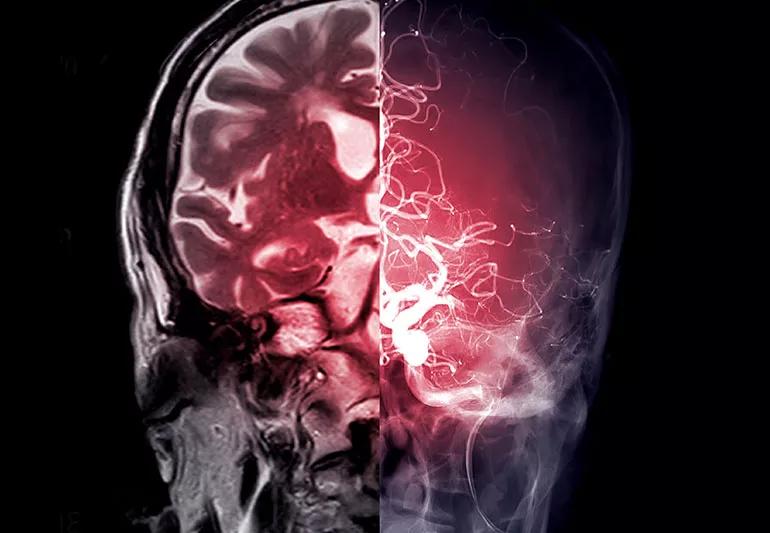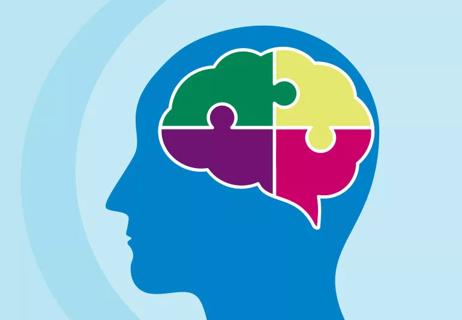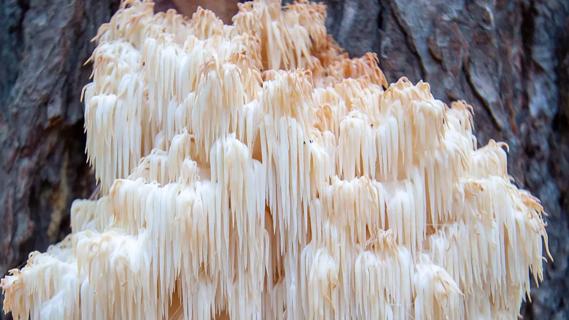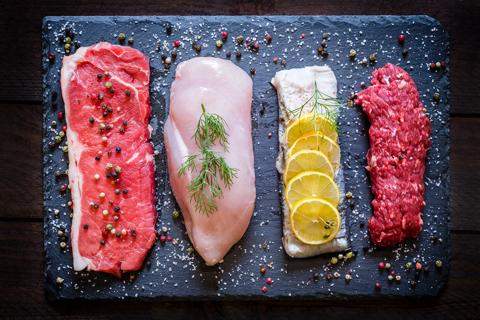Advertisement
What you should know about cryptogenic stroke

When you have a stroke, treatment usually depends on what caused the problem with blood flow to your brain. In some cases, despite an extensive workup, the cause of the stroke may not be evident, or “cryptogenic” (of unknown origin).
Advertisement
Cleveland Clinic is a non-profit academic medical center. Advertising on our site helps support our mission. We do not endorse non-Cleveland Clinic products or services. Policy
While this can be frustrating, ongoing research is helping us understand this medical mystery, offering new methods of detection and treatment.
Neurologist Irene Katzan, MD, explains what you need to know about cryptogenic stroke, and how you can prevent strokes in general.
Ischemic strokes account for 85% of all strokes. These strokes happen when an artery to your brain becomes blocked, usually by a blood clot. About 25% of ischemic strokes are cryptogenic, meaning that tests do not show a definitive cause.
The other 15% of strokes are considered hemorrhagic strokes, which happen when a weakened blood vessel ruptures in your brain.
While there’s research to help uncover the most effective treatments, doctors treat most people who have cryptogenic strokes with aspirin — the kind you find in an average person’s medicine cabinet.
It’s still important to know the signs of stroke so you can get medical attention immediately. “You won’t know if you’re having a stroke while you’re having it. And seconds matter for the initial treatment of all types of stroke, even if the cause is, ultimately, unknown,” says Dr. Katzan.
If you think you or someone you know is having a stroke, call 911 right away. Then a doctor can decide what kind of stroke it is and how best to treat it.
“One way doctors reduce the number cryptogenic strokes is to perform a thorough evaluation,” Dr. Katzan says.
“The level of medical evaluation after a stroke is critical and the diagnosis of cryptogenic stroke may depend on how intense the effort is to get the reason for the stroke,” she adds.
Doctors typically do the following to find the cause of stroke:
Advertisement
Dr. Katzan suggests making sure your doctor takes these four steps. Seek a second opinion if you’re not confident doctors have done everything they can to find out what caused your stroke.
“Atrial fibrillation (AF), a common type of irregular heartbeat, could cause some cryptogenic strokes,” Dr. Katzan says. However, a stroke diagnosis is difficult if the AF happens intermittently instead of all the time. In other words, it may not occur while doctors are evaluating you.
For Dr. Katzan, the key to classifying fewer strokes as cryptogenic may lie with better, or more continuous monitoring (14 days or more) for AF after a stroke. It’s not always possible to monitor someone full-time in a hospital until their heartbeat is irregular. However, there is potential in wearable devices to allow for longer, less intrusive monitoring.
With stroke, the best medicine is prevention. There are steps you can take to help prevent strokes.
To prevent strokes, it’s important to reduce your risk. Your best bet is to make healthy food choices, keep your weight down and exercise to avoid high cholesterol and high blood pressure, both of which increase your risk of stroke.
“If you have either high cholesterol or high blood pressure, the emphasis,” says Dr. Katzan, “is on controlling the problem.” In addition to making healthy choices, it’s important to follow your doctor’s treatment plan, she says.
Advertisement
Learn more about our editorial process.
Advertisement

Some ‘flare-ups’ are temporary and expected, others can signal a need to change therapies

Our collective misremembering of events comes from a surplus of false memories

Most routine vaccines are safe for people living with multiple sclerosis — but be sure to talk with your care team about your needs

This alternative brain-body therapy focuses on unlocking pent-up feelings, memories and tension that may be stuck in your brain and body

Current research suggests 1 out of every 36 children in the U.S. has ASD — and that’s probably an undercount

Strokes in the left side of the brain are more common and the effects are typically more noticeable

These trendy fungi may promote a healthy brain, heart and gut, but more research is needed to say for sure

This vital nutrient helps your brain and body in many ways — and most of us need more of it

Focus on your body’s metabolic set point by eating healthy foods, making exercise a part of your routine and reducing stress

PFAS chemicals may make life easier — but they aren’t always so easy on the human body

While there’s little risk in trying this hair care treatment, there isn’t much science to back up the claims